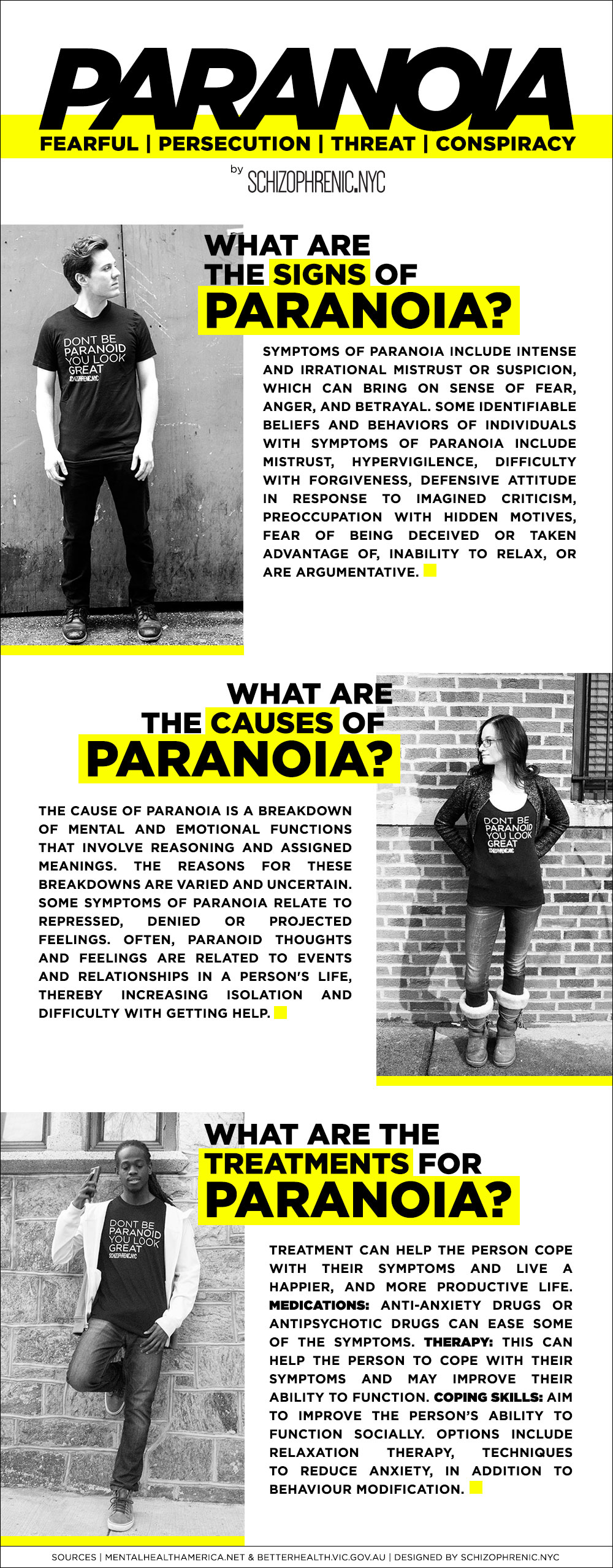
However, the symptoms of schizophrenia vary dramatically from person to person, both in pattern and severity. There are five types of symptoms characteristic of schizophrenia: delusions, hallucinations, disorganized speech, disorganized behavior, and the so-called “negative” symptoms. If schizophrenia or another mental problem is the cause, getting treatment early will help.

When out-of-the-ordinary behavior is causing problems in your life or the life of a loved one, seek medical advice. While these warning signs can result from a number of problems-not just schizophrenia-they are cause for concern.

People with schizophrenia do not have split personalities. Myth: Schizophrenia refers to a “split personality” or multiple personalities.įact: Multiple personality disorder is a different and much less common disorder than schizophrenia. Common misconceptions about schizophrenia Along with the right support, medication, and therapy, many people with schizophrenia are able to manage their symptoms, function independently, and enjoy full, rewarding lives. Schizophrenia is often episodic, so periods of remission are ideal times to employ self-help strategies to limit the length and frequency of any future episodes. Treatment options are improving all the time and there are plenty of things you can do to manage the disorder. Most people with schizophrenia get better over time, not worse.
:max_bytes(150000):strip_icc()/GettyImages-529512911-c1ea57c2ee0a49dd80fdbcb7abcd88c7.jpg)
While schizophrenia is a chronic disorder, many fears about the disorder are not based in reality. at 1-800-273-TALK, visit IASP or to find a helpline in your country, or read Suicide Prevention. If you or someone you care about is suicidal, call the National Suicide Prevention Lifeline in the U.S. Take any suicidal thoughts or talk very seriously… Many people with schizophrenia withdraw from the outside world, act out in confusion and fear, and are at an increased risk of attempting suicide, especially during psychotic episodes, periods of depression, and in the first six months after starting treatment. This can cause relationship problems, disrupt normal daily activities like bathing, eating, or running errands, and lead to alcohol and drug abuse in an attempt to self-medicate. They may see or hear things that don’t exist, speak in confusing ways, believe that others are trying to harm them, or feel like they’re being constantly watched. People with paranoid schizophrenia have an altered perception of reality. The most common form is paranoid schizophrenia, or schizophrenia with paranoia as it’s often called. It affects the way a person behaves, thinks, and sees the world. Schizophrenia is a challenging brain disorder that often makes it difficult to distinguish between what is real and unreal, to think clearly, manage emotions, relate to others, and function normally. What is schizophrenia or paranoid schizophrenia? But with the right treatment and self-help, you can manage the disorder and lead a fulfilling life. Schizophrenia Schizophrenia Symptoms and Coping Tips Recognizing the signs of schizophrenia in yourself or a loved one can be frightening.


 0 kommentar(er)
0 kommentar(er)
